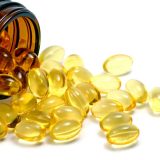

In recent years, several studies have explored the effect of common cleaning products on the human respiratory system. The results are disturbing. In a survey of 6,235 people conducted by researchers at the University of Bergen and Haukeland University Hospital in Norway, lung efficiency appears to decline faster for women who regularly clean their own homes. The lungs of women who work with cleaning products are in even worse shape. The damage is comparable to that of smoking one pack of cigarettes per day.
According to Dr. Cecilie Svanes, senior author of the study and professor at the University of Vergen Center for International Health, the deleterious effect of cleaning products should not surprise us. Agents intended for scouring floors are no gentler on our lungs. The short-term effects of these chemicals on asthma are well documented, but the long-term effects are less well known.
“We feared that such chemicals, by steadily causing a little damage to the airways day after day, year after year, might accelerate the rate of lung function decline that occurs with age,” Svanes says. “The take-home message of this study is that in the long run cleaning chemicals very likely cause rather substantial damage to your lungs. These chemicals are usually unnecessary; microfiber cloths and water are more than enough for most purposes.”
In addition to Svanes’ study, The American Lung Association has warned that ammonia, bleach, and other volatile compounds in cleaning products can irritate the respiratory tract and cause chronic respiratory problems.
The U.S. Environmental Protection Agency has compiled a list of cleaning products that are safer for the health of you and your family. With some basic ingredients, you can even mix some refreshing cleaners of your own! We recommending checking out this list of safer cleaning products provided by the U.S. Environmental Protection Agency.
Oregano Oil Is a Surprisingly Effective Cleaner
Essential oils smell great and some of them can work wonders for your body. We were surprised to discover that oregano essential oil is an extremely effective cleaner.
In Brazil, researchers demonstrated oregano oil’s antibacterial qualities against Staphylococcus aureus, a bacterium responsible for food poisoning. Another study, conducted in Portugal, reported that Origanum vulgare essential oils were effective against 41 strains of the food pathogen Listeria monocytogenes. Oregano oil is also used in the swine industry to eliminate pathogens.
In fact, 14 essential oils have demonstrated strong antimicrobial activity against bacteria responsible for food poisoning and upper respiratory infections.
Oregano oil is recommended for removing bacteria from food preparation surfaces and from stainless steel. Unlike sodium hypochlorite, a common scouring agent, oregano does not corrode the metal.
9 Recipes for Natural Cleaning Products
Want to do your lungs a favor? Mix your own cleaning products. Below, we’ll share some of our favorite natural cleaning recipes from around the web. Many of them use the same ingredients, so it’s a good idea to stock up on the following:
- Baking Soda
- Borax
- Essential Oils
- Hydrogen Peroxide
- Lemons
- Liquid Castile Soap
- Microfiber Cloths
- Natural Salt
- Washing Soda
- White Vinegar
A few notes before we get to the recipes proper. If a recipe uses vinegar, don’t mix it with Castile soap. As The Prairie Homestead’s Jill Winger explains, “the two substances will react to form a gloppy, slimy mess.” For these recipes, Ms. Winger recommends natural dish detergent instead.
Where essential oils are concerned, a short list of the most powerful includes:
- lemon
- lime
- wild orange
- peppermint
- lavender
- eucalyptus
- rosemary
- cinnamon
Essential oils can degrade plastic, so use a glass spray bottle to store them – unless they’re significantly diluted with water. In that case, a plastic spray bottle may be okay to use.
1. A Zesty All-Purpose Cleaner (for counters, sinks, toilets, and most other surfaces)
- 2 cups white vinegar
- 2 cups water
- 1 teaspoon natural dish soap (NOT Castile soap)
- 30 drops lemon essential oil
- 20 drops melaleuca (tea tree) essential oil
Mix ingredients in a quart-sized spray bottle. Shake thoroughly. Spray and wipe.
2. A Minty Window & Mirror Cleaner
- 3 cups distilled water
- 1/4 cup rubbing alcohol or vodka
- 1/4 cup vinegar
- 20 drops peppermint or spearmint essential oil
Mix ingredients in a quart-sized spray bottle. Shake. Spray on mirrors, windows, or stainless steel. Wipe with paper towels or old newspaper.
3. Koala Toilet Scrub
- 1/2 cup baking soda
- 1/3 cup liquid dishwashing soap
- 1/4 cup hydrogen peroxide
- 30 drops eucalyptus essential oil
- 3/4 cup water
Mix ingredients in a squeeze bottle and then squirt into toilet. Scrub. Let stand 20 minutes.
4. Mellow Shower Spray (to prevent scum buildup)
- 1 1/2 cups water
- 1 cup white vinegar
- 1/2 cup rubbing alcohol
- 1 teaspoon natural liquid dish soap (not Castile soap)
- 15 drops lime essential oil
- 15 drops melaleuca (tea tree) essential oil
Mix in quart-sized spray bottle. Spray daily on shower door and walls after use.
5. Zesty Carpet Freshener
- 1 cup baking soda
- 30 drops lemon essential oil
Seal tightly in a small container. Shake thoroughly. Let it sit for 8 hours. Sprinkle on smelly carpet. Allow it to sit overnight and vacuum up the next morning.
6. Lovely Linen Spray
- 1/4 cup distilled water
- 3 tablespoons witch hazel or vodka
- 20 drops lavender essential oil
- 15 drops frankincense essential oil
Add ingredients to spray bottle. Shake thoroughly. Spray on sheets, pillowcases, and linens.
7. Organic Wood Polish
- 3/4 cup olive oil
- 1/4 cup white vinegar
- 30 drops essential oil (choose your favorite)
Mix thoroughly in a spray bottle. Spray directly on wood. Buff with a clean, dry cloth. Shake before each use.
8. Homemade Wet Wipes
- 3/4 cup water
- 1/4 cup vinegar
- 8 drops tea tree oil
- 8 drops eucalyptus essential oil
- 8 drops lemon essential oil
- Empty “wipe” container
- 15-20 squares of cloth
For the squares of cloth, you can use old t-shirts, dish towels or whatever clean rag you have on hand. Fold the cloth squares into the empty container and set aside. Mix water, vinegar and essential oils – thoroughly. Pour mixture over the cloths in the container. Allow them to soak before use.
9. DIY Drain Cleaner
- 1/4 to 1/2 cup baking soda
- 1/4 cup white vinegar
Sprinkle baking soda into clogged or smelly drain. Add vinegar. Allow mixture to bubble for an hour. Rinse with boiling water. Repeat as necessary. (Pro Tip: Do this regularly to ensure a fresh smell and avoid future clogs.)




